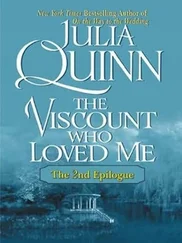Depending on how you look at it, Ana was the woman that I most needed or who was least advisable for me at that moment: fifteen years younger than me, too undemanding in the way of material things, horrible and wasteful as a cook, a passionate dog lover, and gifted with a strange sense of reality that made her go from the most eccentric ideas to the firmest and most rational decisions. From the beginning of our relationship she had the ability to make me feel like I had been looking for her for many, many years. That’s why I didn’t find it strange when, a few weeks into the calm and very satisfactory sexual relationship that began the first day I went to the house where Ana lived with a friend to give Tato an IV, the girl threw her belongings into two backpacks and, with her ration book, a box of books, and her nearly recovered poodle, moved into my damp and already peeling apartment in Lawton.
Besieged by hunger, blackouts, the devaluation of our salaries, and a transportation standstill — amid many other evils — Ana and I lived through a period of ecstasy. Our respective scrawniness, accentuated by the long trips we made on the Chinese bicycles that our workplaces had sold us, turned us into almost ethereal beings, a new species of mutants capable, nonetheless, of dedicating our remaining energies to making love, to talking for hours, and to reading like fiends — for Ana, poetry; for me, a return to novels after a long time without them. But they were also unreal years, lived in a dark and sluggish country, always hot, that was falling apart day by day without quite falling into the troglodytic primitiveness that threatened us. And they were years in which not even the most devastating scarcity was able to stamp out the joy that living together brought Ana and me, like the shipwrecked who tie themselves to one another to either jointly save themselves or perish together.
Apart from the hunger and the material shortcomings of all kinds that besieged us — although between us we considered them outside us and inevitable, and thus foreign to us — the only sadly personal episodes we experienced at that time were the revelation of the vitamin-deficient polyneuritis that Ana began to suffer from and, later on, the death of Tato at the age of sixteen. The loss of the poodle affected my wife so much that, a couple of weeks later, I tried to alleviate the situation by picking up a stray pup infected with mange, whom Ana immediately started to call “Truco” due to his ability to hide, and whom she fed with rations taken from our paltry survivors’ diet.
Ana and I had achieved a level of such rapport that, one night, under a blackout, with ill-contained hunger, unease, and heat (how was it possible that it was always so damned hot and that even the moon seemed to shed less light than before?) — as if I were just carrying out a natural need — I began to tell her the story of the meetings that, fourteen years before, I had had with that character whom I had always called, from the very day I met him, “the man who loved dogs.” Until that night on which, almost without prologue and as an outburst, I decided to tell Ana that story, I had never revealed to anyone the subject of my conversations with that man and, less still, my delayed, repressed, and often forgotten desire to write the story he had confided in me. So that she would have a better idea of how I’d been affected by the proximity to that figure and the dreadful story of hate, betrayal, and death that he’d given me, I even gave her some notes to read that many years before, from the ignorance I wallowed in at the time, and almost against my own will, I had not been able to keep myself from writing. She had barely finished reading them when Ana stared at me until the weight of her black eyes — those eyes that would always look like the most living thing of her body — began to berate me and she finally said, with appalling conviction, that she didn’t understand how it was possible that I, especially I, had not written a book about that story that God had put in my path. And looking into her eyes — those same eyes now being eaten by worms — I gave her the answer that had slipped away from me so many times, but the only one that, because it was Ana, I could give her:
“Fear kept me from writing it.”
The icy mist swallowed the outline of the last huts, and the caravan again plunged into that distressing whiteness, so limitless, without anything to rest your gaze on. It was at that moment that Lev Davidovich was able to understand why the inhabitants of that rough corner of the world have insisted, since the dawn of time, on worshipping stones.
The six days that the police and the exiles had spent traveling from Alma-Ata to Frunze, through Kyrgyzstan’s icy steppe, enveloped by an absolute whiteness in which any notion of time and distance was lost, had served to reveal the futility of all human pride and the exact dimension of its cosmic insignificance in the face of the essential power of the eternal. The waves of snow coming down from the sky, in which all trace of the sun had vanished and that threatened to devour everything that dared to challenge its devastating persistence, proved to be an indomitable force which no man could stand up to; it was then that the apparition of a tree, the outline of the mountain, the frozen gully of a river, or a simple rock in the middle of the steppe, turned into something so noteworthy as to become an object of veneration. The natives of those remote deserts have glorified stones, because they assure in their capacity for resistance, that there is a force, enclosed forever inside of them, like the fruit of an eternal will. A few months earlier, while already in the midst of his deportation, Lev Davidovich had read that the sage known as Ibn Battuta, and farther east by the name of Shams ad-Dina, was the one who revealed to his people that the act of kissing a sacred stone results in a comforting spiritual pleasure, since upon doing so the lips experience a sweetness so deep that it leads to the desire to keep kissing it until the end of time. For that reason, wherever there is a sacred stone, it is forbidden to wage battles or kill enemies, as the pureness of hope must be preserved. The visceral wisdom inspiring that doctrine seemed so lucid that Lev Davidovich asked himself if the revolution really had any right to disrupt an ancestral order, perfect in its own way and impossible for a European mind affected by rational and cultural prejudices to gauge. But the political activists sent from Moscow were already in those lands, focused on turning the nomadic tribes into collective farm workers, their mountain goats into state livestock, and in showing Turkmens, Kazakhs, Uzbeks, and Kyrgyzstanis that their atavistic custom of worshipping stones or trees in the steppe was a deplorable anti-Marxist attitude that they should renounce in the name of progress of a humanity capable of understanding that, at the end of the day, a stone is only a stone and that you don’t feel anything besides simple physical contact when cold and exhaustion have eaten up all human will, and in the middle of frozen desert, a man armed with only his faith finds a piece of stone and takes it to his lips.
A week before, Lev Davidovich had seen how they wrested away from him the last few stones that still allowed him to orient himself on the turbulent political map of his country. He would later write that that morning he’d awoken petrified and overwhelmed by a bad premonition. Convinced that he was not just shaking because of the cold, he had tried to control his spasms and had managed to make out the tattered chair-turned-night-table in the shadows. He had felt around until he found his glasses, the shakes making him fail twice at placing the metallic stems over his ears. In the milky light of the winter dawn, he had finally managed to spy on the wall the almanac adorned with the image of some statues of young people from the Leninist Komsomol that had been sent to him from Moscow a few days before without his knowing who sent it, since the envelope and the possible letter from the sender had disappeared, like all of his correspondence in recent months. Only at that moment, as the numbered evidence of the calendar and the rough wall it hung from brought him back to his reality, did he have the certainty that he had woken up with that anxiety due to having lost the notion of where he was and when he was waking. For that reason he felt a palpable relief upon discovering that it was January 20, 1929, and he was in Alma-Ata, lying on a squeaking cot, and that at his side was his wife, Natalia Sedova.
Читать дальше











